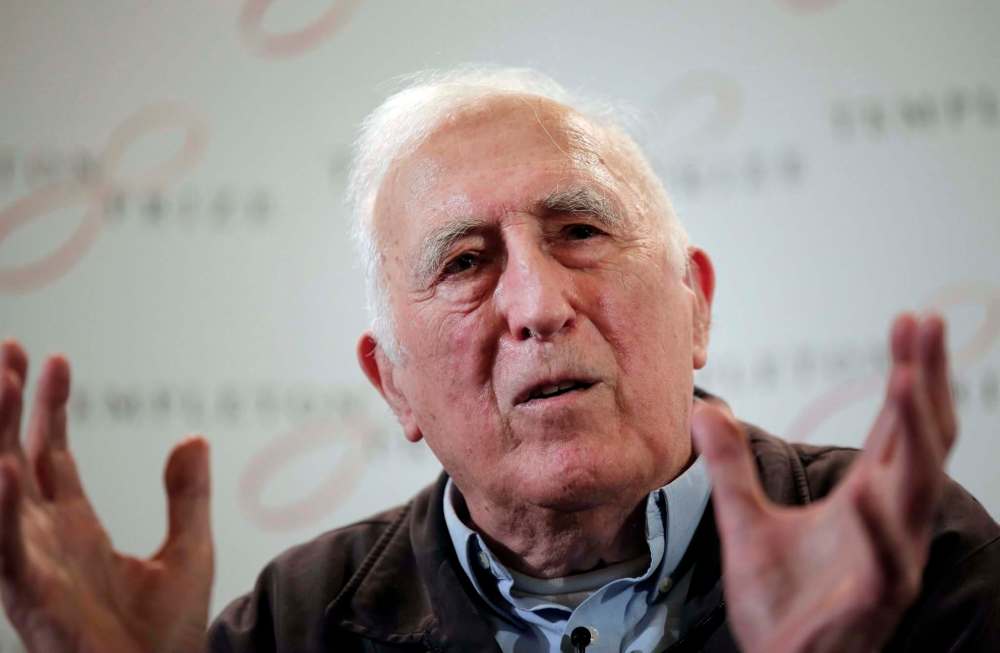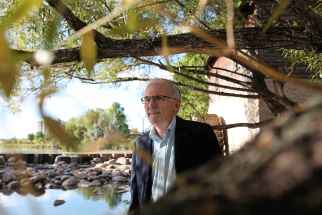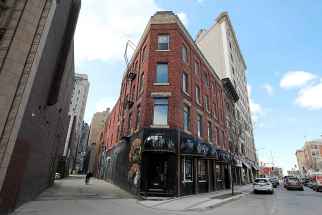Vanier’s passion spread kindness, understanding
Read this article for free:
or
Already have an account? Log in here »
To continue reading, please subscribe:
Monthly Digital Subscription
$0 for the first 4 weeks*
- Enjoy unlimited reading on winnipegfreepress.com
- Read the E-Edition, our digital replica newspaper
- Access News Break, our award-winning app
- Play interactive puzzles
*No charge for 4 weeks then price increases to the regular rate of $19.00 plus GST every four weeks. Offer available to new and qualified returning subscribers only. Cancel any time.
Monthly Digital Subscription
$4.75/week*
- Enjoy unlimited reading on winnipegfreepress.com
- Read the E-Edition, our digital replica newspaper
- Access News Break, our award-winning app
- Play interactive puzzles
*Billed as $19 plus GST every four weeks. Cancel any time.
To continue reading, please subscribe:
Add Free Press access to your Brandon Sun subscription for only an additional
$1 for the first 4 weeks*
*Your next subscription payment will increase by $1.00 and you will be charged $16.99 plus GST for four weeks. After four weeks, your payment will increase to $23.99 plus GST every four weeks.
Read unlimited articles for free today:
or
Already have an account? Log in here »
Hey there, time traveller!
This article was published 08/05/2019 (2412 days ago), so information in it may no longer be current.
Among the many praiseworthy contributions made by Jean Vanier during his lifetime, perhaps the most important is that he helped change society’s views on the value of people with disabilities.
Mr. Vanier, who died Tuesday at the age of 90, put his passion into action by founding L’Arche, communities where people with developmental disabilities live and work with those who come to assist them. Winnipeg models his concept with six L’Arche houses, two L’Arche apartments and a L’Arche café that welcomes the public.
Mr. Vanier explained the crucial priority that everyone involved in L’Arche is nurtured with kindness: “Every child, every person, needs to know that they are a source of joy; every child, every person, needs to be celebrated. Only when all of our weaknesses are accepted as part of our humanity can our negative, broken self-images be transformed.”

That’s a radical departure from the bad old days when many people with developmental disabilities were confined to institutions that were fenced off to reinforce the isolation from the surrounding community. Inside these structures, residents were subjected to treatments that were then in vogue but are now considered cruel, including sterilization, chemical injections, straitjackets and imprisonment in small rooms for time-outs.
There remain a relatively small number of people with developmental disabilities in institutions in Manitoba, and we trust the treatment they receive today is more humane than the barbarism of the past. But the more modern attitude is to unlock the institution doors and move toward community settlement and social inclusion.
Perhaps no one does social inclusion better than Mr. Vanier’s network of 154 L’Arche communities situated in 38 countries on five continents. At L’Arche, people with intellectual disabilities are integrated into local neighbourhoods through jobs and social and volunteer opportunities. Inside their homes, they are celebrated for who they are, not just tolerated.
Although there are no religious requirements to participate in L’Arche’s radical style of communal living, the story of Mr. Vanier’s worldwide effect is incomplete without referring to his Christian faith. At every chance, he publicly praised the unconditional love of Jesus Christ as the template for both his own life and the model for the communities he founded.
“‘I had somewhere the intuition that peace could only come if the vision of Jesus was revealed; to bring people together and break down the dividing walls that separate people,” he said.
Mr. Vanier was gifted with the top honours societies can bestow. He was celebrated with dozens of esteemed tributes, including being named a Companion of the Order of Canada, receiving France’s Legion of Honour and winning Britain’s prestigious Templeton Prize. His death was publicly mourned this week by prime ministers, presidents and the Pope.

Yet, judging by the statement made by his life, he would likely just as soon forgo the world’s glamorous acclaim and, instead, eat pizza with his developmentally disabled housemates in the first L’Arche community he founded, where he continued to live until his death.
We can admire Mr. Vanier from afar, or we can let our admiration inspire us to do what he did: recognize the humanity of people who don’t have power, money or privilege.
The L’Arche Tova Café, 119 Regent Ave. W., is open for breakfast and lunch, Monday through Saturday. Don’t be surprised if you’re welcomed with a big smile from a restaurant employee who once might only have been noticed for their disability until they were loved at L’Arche.








